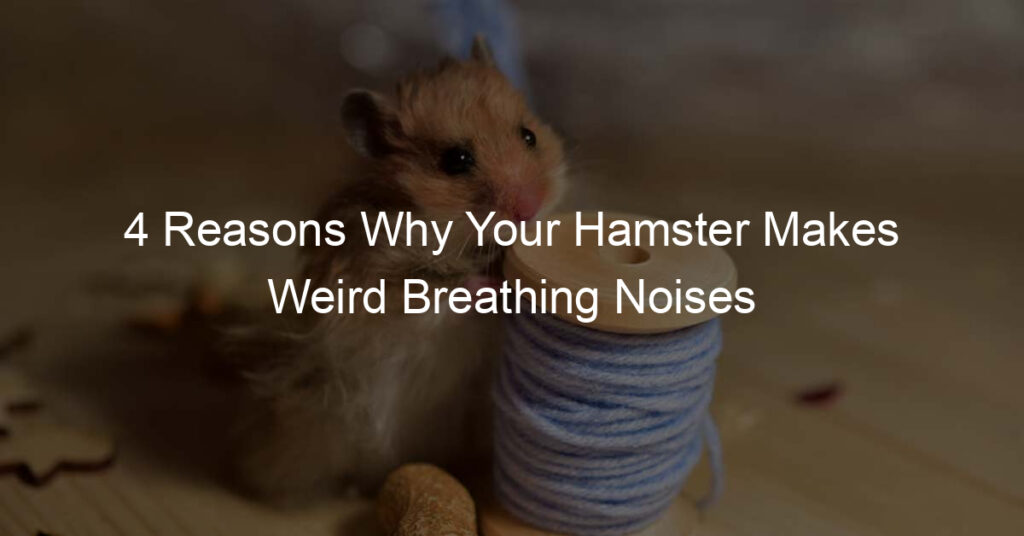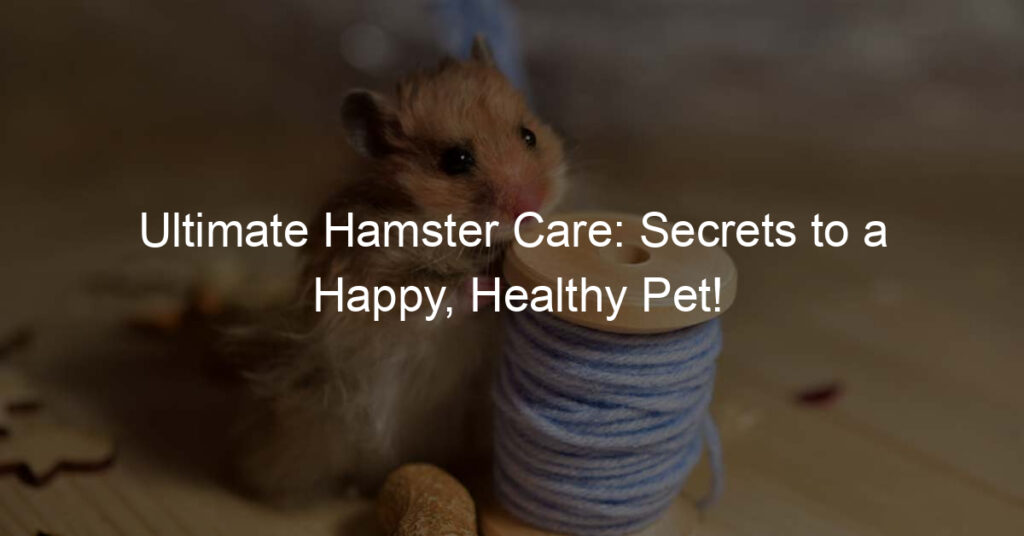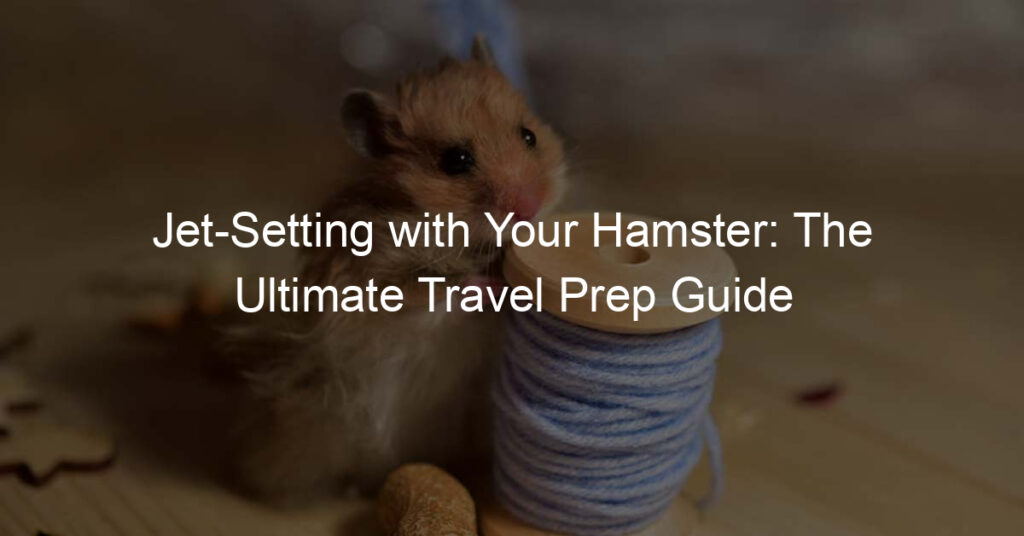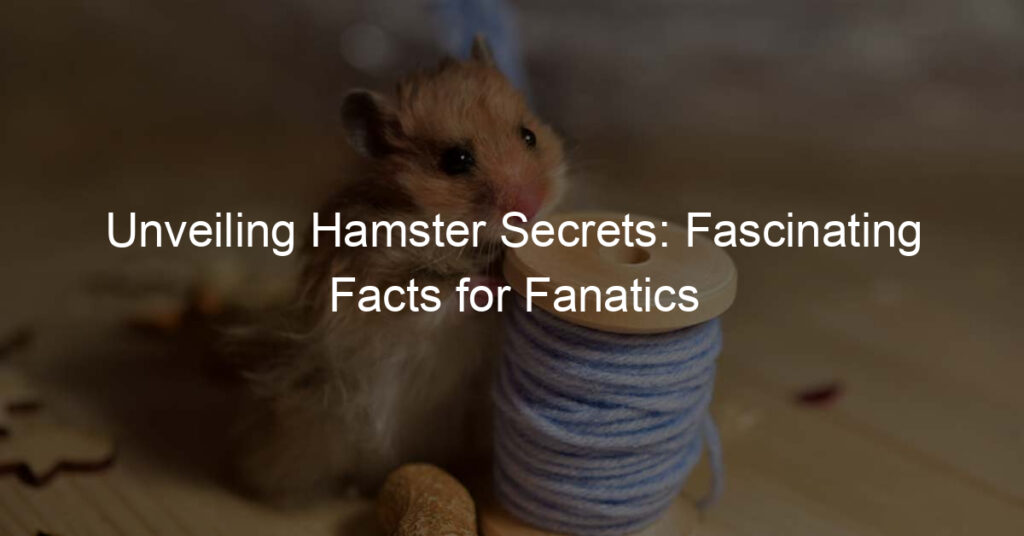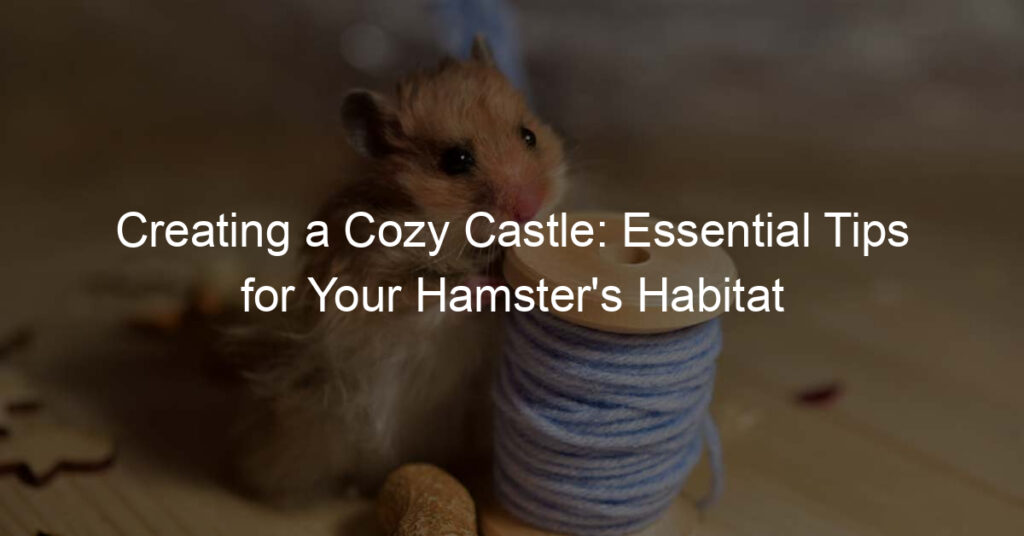Taking care of your furball needs more attention, and you will notice any weird behaviors and take action when necessary.
Strange breathing noises can indicate serious health problems, especially when it happens continuously. It can also be an act of mischief.
Let’s check some of the reasons why your hamster is breathing and producing unusual sounds. Stick on.
1. Respiratory Infection

Hamsters are likely to get respiratory infections and diseases like chronic bronchitis, pneumonia, and emphysema, characterized by weird heavy breathing, clicking noises, and wheezing.
When your pet sneezes and makes noises, it may be a sign of allergies which is not news amongst the little friends whose allergies are easily triggered.
Pneumonia
Keep your rodent friend in a dry room for a healthy respiratory system, and remove any dump litter from the cage. When choosing litter and bedding for your hamster, ensure it’s dust-free to avoid allergies.
Keep warm temperatures in the room and cage to reduce the chances of pneumonia, which can be devastating to the tiny animals’ respiratory system.
Another indication that your little one is suffering from respiratory infection is regular wheezes and clawing for every breath. At this point, take your pet to the vet for more checkups.
Chronic Bronchitis and Emphysema
Your hamster can get the disease which is accompanied by coughs and wheezing. However, the cause is unclear whether it’s a genetic defect or an allergic reaction. The congenital defects are quickly passed since rodent pets are subjected to inbreeding, contributing to some respiratory problems.
Your little friends are also prone to emphysema, which is common in smokers and studies show that it’s likely to occur from genetic reasons. The unusual clicking noises could also indicate lung cancer that kills hamsters.
2. Coughs and Colds

If you notice wheezes, sneezes, and difficulty breathing with your hamster, especially in the morning, that could signify a cold. If you need to figure out how serious the situation is, you should visit the vet for more recommendations.
Flu is common, especially in the cold season, and there’s no reason to panic. However, ensure that the little ones’ cage window is closed and they are in warm bedding. If you have flu and interact with the pet, there is a higher chance that she will contract it.
Just like humans, coughs in hamsters will come and go within a day or two, and if the cough symptoms persist, your pet may suffer from a more severe condition, and your vet will help immensely.
Listen to your hamster’s breathing pattern and check whether it’s accompanied by excess wetness on the nose. If it’s cold, you should isolate the pet from others, saving them from the flu infection.
Since most hamsters are used to a hot climate, you can place a hot water bottle under the bedding to keep the pet cage environment warm.
3. Natural Behavior

Some noises from your pet may indicate their natural behavior. For example, some hamsters will produce sharp clicking noise that can worry you.
Hamsters adapt the breathing noises when they are afraid of something or in an aggressive mood. They even get tired of cuddling and kisses and will breathe deeply or produce clicking noises as a warning that you should let them go.
You will also notice squeaky sounds when your hamster is sleeping, and it’s normal behavior since the animals also experience dreams.
Some hamsters produce a regular snore, especially if they have spent their day rolling on the exercise wheel, and the behavior is typical in older pets.
4. Hibernation
Domestic hamsters experience hibernation that’s different from that of wild hamsters. For example, some will start breathing heavily before hibernating on cold days.
Some won’t have the experience since selective breeding erases the genetic memories preventing the little one from sleeping for a third of a year.
The temperature of your area also determines whether your pet will experience hibernation, and some will produce funny breathing sounds with dropping temperatures to prepare for hibernation.
How Can You Detect That Your Hamster is Suffering From Respiratory Disease?
Apart from the weird breathing and sneezing, you will notice other behavioral changes, like your hamster may start reducing food intake even when you provide her favorite, which leads to weight loss.
You will also notice a decrease in their activity, and they will spend most of their time lying on the bedding regardless of their playful nature.
Why Does My Hamster Make Sniffing Sounds?

There’s no cause for alarm when you notice sniffing sounds, especially when your pet is new to the environment. Instead, the behavior indicates curiosity and often happens when the hamster explores the surroundings.
Final Thoughts
Irregular breathing from your hamster can indicate respiratory problems, especially when the little one has been exposed to cold. Observe your pet to ensure the signs aren’t persistent.
Sometimes the difficulty in breathing is a sign of flu and cold that often disappears within two days, while others indicate chronic diseases.

